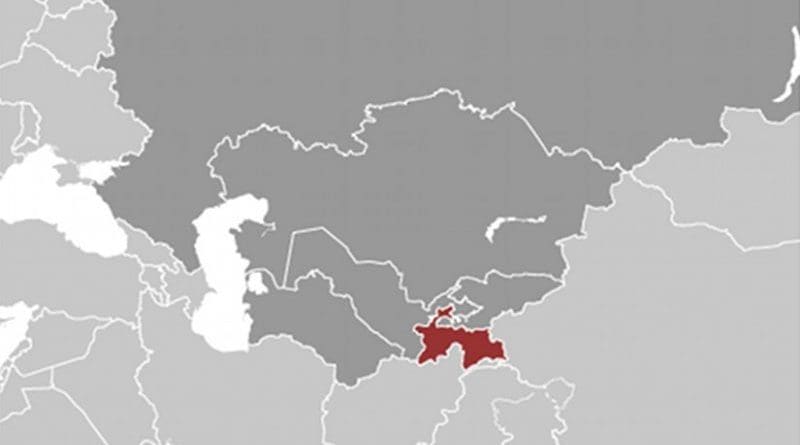Tajikistan’s New Crackdown On Muslims Seen Creating Problems Inside Russia
By Paul Goble
Tajikistan, which until recently had the most tolerant approach to Islam among the Central Asian countries, has now launched a broad campaign against what Dushanbe sees as a threat to the country’s secular government. But that campaign may have negative consequences for Moscow if Tajik Islamists shift their base of operations into Russia.
One of the consequences of the Tajik civil war of the 1990s, Andrey Melnikov and Vladislav Maltsev write in “NG-Religii,”was an agreement between the powers that be and the Islamic opposition and the willingness of the former to allow the latter to serve in parliament and even in coalition governments (religion.ng.ru/events/2010-12-01/1_tadjikistan.html).
Tajikistan is thus the only country in Central Asia which has a political party with a Muslim program, the Islamic Party of Rebirth of Tajikistan, a reality that many outside that country viewed as “a manifestation of the weakness of the Tajik state,” especially when compared to “the authoritarian regimes” surrounding it.
Now, however, Dushanbe has decided to try to disband that party, with the justice ministry saying that the existence of a mosque in the offices of the Islamic Party is a violation of the country’s religious laws. The party itself plans to appeal to the courts to overturn that rule, but it appears likely that the government will do whatever it takes to close the party.
“The ruling regime considers the opposition not as political competitors but as an opponent who threatens the security of the state,” Mukhiddin Kabiri, the head of the party says, adding that “the relations of the state and religious organization s today in Tajikistan are experiencing not the best times.”
On the one hand, Tajikistan is simply following the trend of other states in the region which increasingly pursue a hard line in dealing with Islamic groups that the powers that be feel threatened by. And on the other, Dushanbe, like the others, is confident that such actions in the wake of September 11, will not draw the kind of criticism from the West that they did earlier.
The influence of Islam and of Islamists in Tajikistan is on the rise, and the force structures of Dushanbe have been arresting members of the prohibited Hizb ut-Tahrir party. But the Tajik government has signaled its intensions by creating a State Committee on Religious Affairs to gain control of the official Muslims and thus to move against everyone else.
Another aspect of this effort is Tajikistan President Emomali Rakhmon’s drive to de-Islamicize” public spaces in his country by having his officials denounce the wearing of the hijab as an alien custom and by seeking to have all Tajiks studying at Muslim educational institutions abroad to return home.
The latter effort, Melnikov and Maltsev say, apparently reflects the recollection by officials in Dushanbe that “students of Tehran higher educational institutions [served] as the shock force for the Islamic revolution of 1979 in Iran” and their judgment that the same thing might happen in Tajikistan.
But as several news services have pointed out this week, this program may prove counter-productive. Not only are the students pulled out of institutions where they were often studying more than just Islam but on their arrival in Dushanbe, they are treated almost as criminals and then are left unemployed (www.asiaplus.tj/articles/96/5628.html).
Such treatment, which recalls the experiences of Russian émigrés who chose to return to the USSR after 1945 as shown in the classic film “East/West,” does little to encourage them to be grateful to Dushanbe. In fact, it may drive some of them into precisely the Islamist underground that the Tajik authorities hope to destroy.
But as the “NG-Religii” article suggests, what the Tajik authorities are doing may have a spillover inside the Russian Federation. Roman Silantyev, a specialist on Islam with close ties to the Moscow Patriarchate, says that one result of this campaign may be the flight of Tajik Islamists into Russia.
He said that he had identified numerous cases where immigrants from Tajikistan and Uzbekistan “have become imams of Russian mosques,” until they are deported or detained “because of ties with extremist organizations.” Silantyev added that at least a few of these immigrant Muslims work in some of Russia’s Muslim spiritual directorates (MSD).
One of those where this problem is especially great, Silantyev says, is the MSD for the Asiatic Part of Russia headed by Nugman Ashirov.
Unfortunately, he suggests, the civil authorities have not been able to act because “according to existing law, the Justice Ministry of Russia does not control the cadres policy of the MSDs.”{jcomments on}

